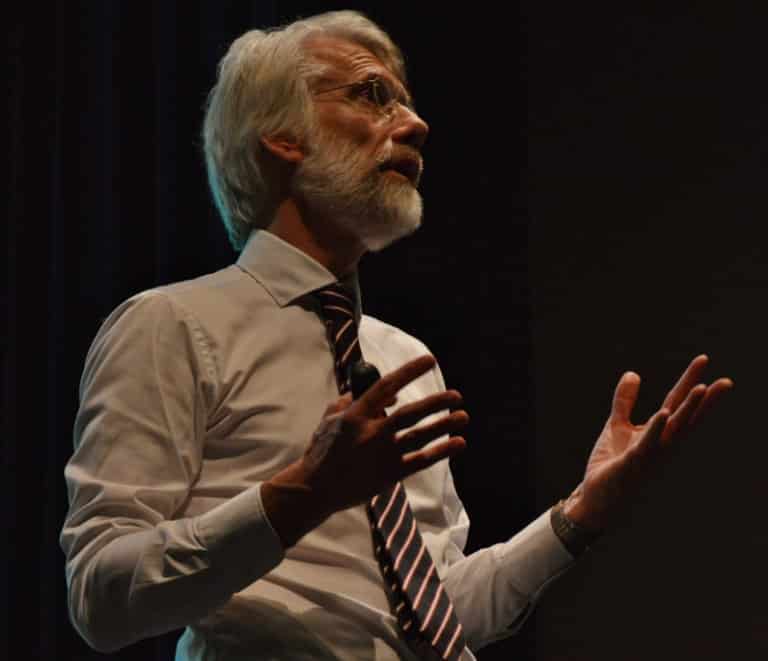
Omgaan met stress
Omgaan met stress? “Niksen helpt niet”, zegt dr. Erik Scherder

Omgaan met stress? “Niksen helpt niet”, zegt dr. Erik Scherder

Hard werken aan een deadline gaat vaak gepaard met een zak chips, reep chocola of een calorierijke afhaalmaaltijd. Niet gek dat je soms het gevoel hebt dat je na een stressvolle periode meer aangekomen bent. Toch is die afhaalmaaltijd volgens hoogleraar en arts-endocrinoloog Liesbeth van Rossum (ErasmusMC) niet de enige boosdoener voor overgewicht. In dit college vertelt Liesbeth wat stress met je lichaam doet en hoe de vrijkomende hormonen échte dikmakers kunnen zijn.
Kijk het hele filmpje van De Universiteit van Nederland van iets meer dan 15 minuten hier
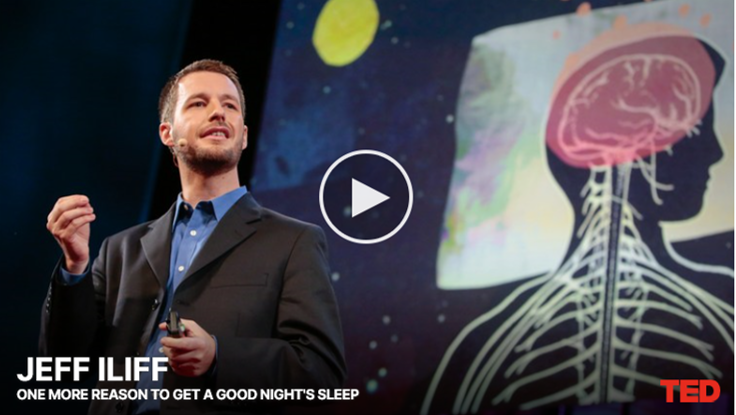
The brain uses a quarter of the body’s entire energy supply, yet only accounts for about two percent of the body’s mass. So how does this unique organ receive and, perhaps more importantly, rid itself of vital nutrients? Research suggests it has to do with sleep. Dr. Jeff Iliff explains the need for sleep for the brain in aTed Talk that you can see here.
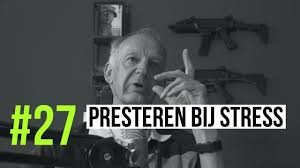
Henk Kraaijenhof is performance coach, en heeft jarenlang internationale topsporters getrained, maar is ook onder andere betrokken bij de trainingen van de Bijzondere Bijstandseenheid van het Korps Mariniers. Hij heeft veel onderzoek gedaan naar de invloed van stress en vermoeidheid op prestaties
“Het probleem met stress en burn-out is dat het geen ziektes zijn, ze zijn eigenlijk niet als zodanig officieel erkend. Maar je bent met een burn-out wel minimaal een jaar uit de running en je komt vaak in een burn-out terecht omdat eerdere klachten niet worden onderkend. Het lastige is ook wel: bij wie klop je aan? De huisarts heeft hiervan nauwelijks verstand.”
“Wij meten hier met verschillende apparaten en onderscheiden op het gebied van stress vier verschillende fasen. In de eerste gaat het om fysieke vermoeidheidsverschijnselen. Bij de tweede gaat om een vermoeidheid in het hoofd, dat je voortdurend loopt te piekeren. Bij de derde hebben we het over een overbelasting van het autonome zenuwstelsel. Mensen gaan dan vechten en vluchten, ze slapen slecht, zijn hyperactief. Eigenlijk blijft het gaspedaal hangen. Dat kun je dan zien in allerlei waardes, van de hartslag tot de bloeddruk en de spijsvertering. Over al die vitale functies heb je dan minder of te weinig controle. Bij de vierde heb je het over het systeem van de stresshormonen, bijvoorbeeld cortisol. Stresshormonen vormen normaal een backupsysteem van het lichaam. Via de hersenen – hersengolven – meten we dat, via de activiteit van de hypofyse, de hypothalamus en de bijnieren, die weer cortisol produceren. Uiteindelijk zit je, als je veel stress hebt en in dat proces ver bent gevorderd, laag in je cortisol. Hieruit voortvloeiend kun je ook verschillende types van burn-out onderscheiden. De oorzaak kan dus bijvoorbeeld liggen in het centrale zenuwstelsel of het kan liggen in het systeem van de stresshormonen.”
“De grootste vijand van goed werken is perfect werken”
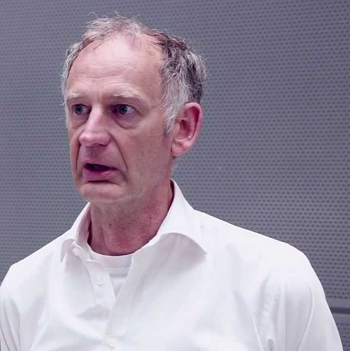
Meer informatie van en over Henk Kraaijenhof vind je hier, luister je hier en kijk je hier.
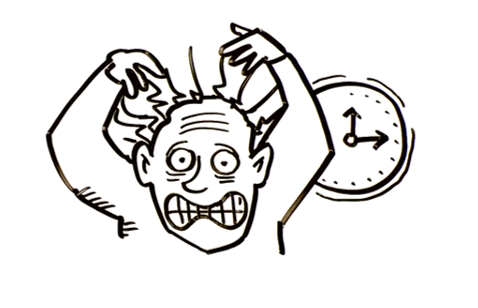
Interessant stukje van ongeveer 11 minuten over verschillende perspectieven op stress van Dr. Mike Evans van de Reframe Health Lab. Mindfulness zoals de Be your Very Best methode wordt nadrukkelijk genoemd als een van de beste oplossingen voor stress. Klik hier voor de link.
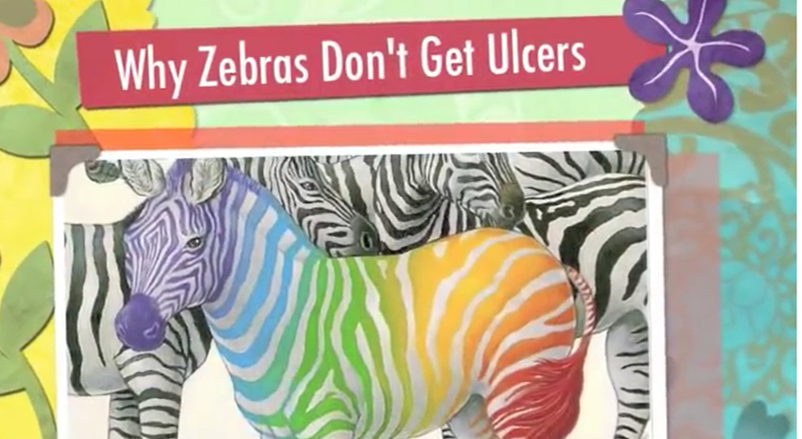
Korte selectie van 3 minuten van de langere National Geographic uitzending The Science of Stress waarin wordt uitgelegd wat het verschil is tussen stress bij (bv) zebra’s en primaten zoals apen en mensen. Klik hier voor de link.
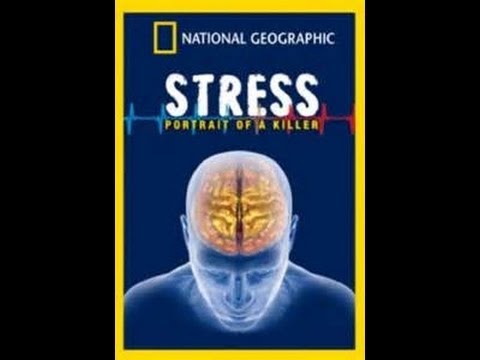
Scientific discoveries in the field and in the lab prove that stress is not a state of mind, but something measurable and dangerous. Over the last three decades, Stanford university neurobiologist Robert Sapolsky has been advancing our understanding of stress. This video will share with you a scientific overview of the body’s stress response system involving the stress hormones known as Adrenaline and Cortisol.
Klik hier voor de volledige TV show van bijna een uur van National Geographic: ‘The Science of Stress – Portrait of a Killer’.
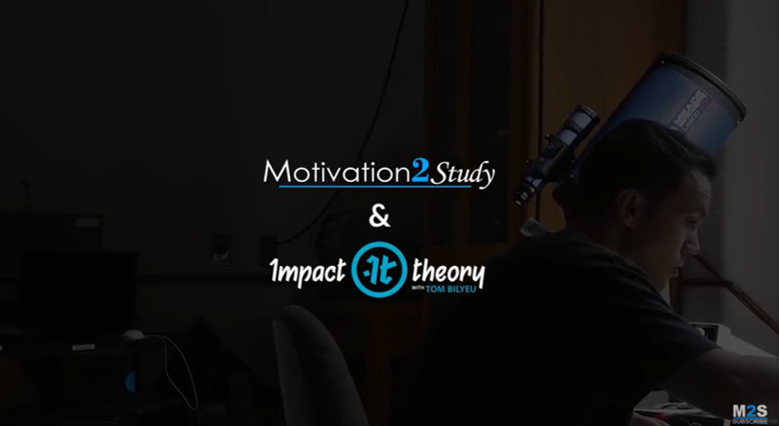
Dr. Joe Dispenza speaking about how stress is actually killing you and what you can do about it!
Klik hier voor de 13 minuten durende Eye Opening Speech ‘Stress is KILLING You | This is WHY and What You Can Do’ van Dr. Joe Dispenza

Wist je dat het helemaal niet zo ongezond is om stress te hebben? Maar, we moeten natuurlijk ook niet overdrijven. Wanneer bereiken we onze stress-grenzen dan? De klinische psychologie met prof. dr. Elke Van Hoof als vertegenwoordiger biedt je een antwoord.
Kijk hier 10 minuten naar de Universiteit van Vlaanderen met ‘Hoeveel stress kan een mens aan?’

What cause us to have so much stress these days? And why are especially young people vulnerable to this?
What is stress? What happens in the brain and in the body during stress?
What are the consequences of stress, if you’re not careful?
What is burn-out?
Which 5 steps can you take to reduce stress in your life?
Final message: it IS possible to experience less stress in life – with some practical solutions. But YOU have to make the choice to do this!
Thijs is a psychologist who has written two books: Quarterlife, about the quarterlifer crisis, and The Millenial Manifesto, about the societal factors which lead to the high prevalence of mental health issues among young people.
Klik hier voor het verhaal van ongeveer 15 minuten ‘ How stress is killing us (and how you can stop it)’ van Thijs Launspach bij de TEDxUniversiteitVanAmsterdam

In een tijd waar 1 miljoen Nederlanders jaarlijks het risico lopen op een burnout of andere stressgerelateerde ziekte, is een een beetje hulp bij het omgaan met stress niet verkeerd. Onze redder in nood: prof. dr. Ad Vingerhoets (Tilburg University) vertelt je wat je kunt doen om je stress te beperken.
Klik hier voor het college van ongeveer een kwartier van Prof. Dr. Ad Vingerhoets in samenwerking met de Nationale Wetenschapsagenda (NWA).

Heel interessant: 4 minuten lijken naar Working with Traumatic Memory That’s Held in the Body with Peter Levine, PhD
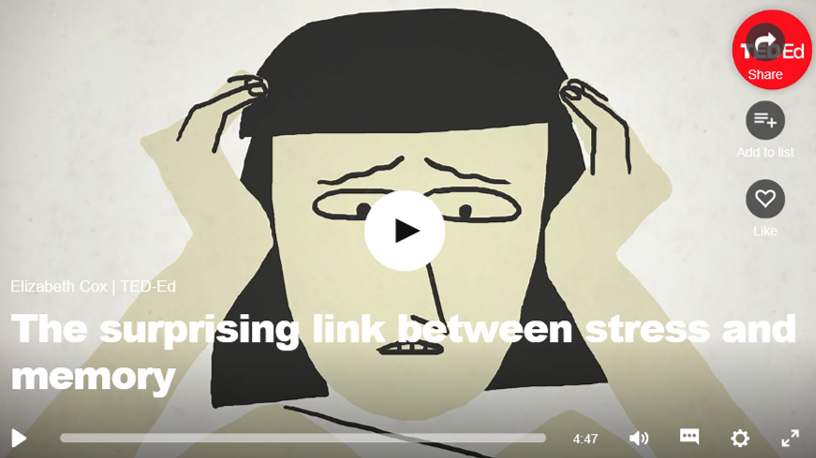
You spend weeks studying for an important test. On the big day, you wait nervously as your teacher hands it out. You’re working your way through, when you’re asked to define “ataraxia.” You know you’ve seen the word before, but your mind goes blank. What just happened? Elizabeth Cox details the complex relationship between stress and memory.
De link naar het verhaal van ongeveer 5 minuten The surprising link between stress and memory van Elizabeth Cox op Ted Ed vind je hier.

In this inspiring talk, neuroscientist Kristen Race explains why Generation X is now “Generation Stress,” and proposes small changes that will help you break the cycle of stress in your own life and your family’s.
In the spirit of ideas worth spreading, TEDx is a program of local, self-organized events that bring people together to share a TED-like experience. At a TEDx event, TEDTalks video and live speakers combine to spark deep discussion and connection in a small group. These local, self-organized events are branded TEDx, where x = independently organized TED event. The TED Conference provides general guidance for the TEDx program, but individual TEDx events are self-organized.* (*Subject to certain rules and regulations)
Kristen Race is a parent of two young children, as well as an expert in child, family and school psychology. Kristen is the author of Mindful Parenting, and founder of Mindful Life, which provides programs designed to improve brain function and brain development in adults and children. She has trained more than 10,000 leaders in her methods worldwide.
De link naar de TEDx talk van ongeveer een kwartier vind je hier.
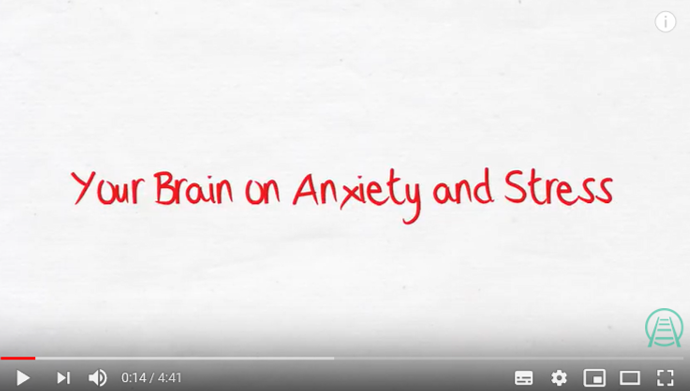
Stress is the way our bodies and minds react to something which upsets our normal balance in life. Stress is how we feel and how our bodies react when we are fearful or anxious. Some level of stress has some upside to mind and body function to enable us to react in a positive way. Too much stress though, is both harmful to the body and our performance. How much is too much? Well, that depends… on you and how you respond. It is essential to know how our brain responds to the stimuli which trigger an anxiety response so that you are equipped to deal appropriately with anxiety.
De interessante korte les van ongeveer vier minuten van Dr. John Kenwothy vind je hier.

Our hard-wired stress response is designed to gives us the quick burst of heightened alertness and energy needed to perform our best. But stress isn’t all good. When activated too long or too often, stress can damage virtually every part of our body. Sharon Horesh Bergquist gives us a look at what goes on inside our body when we are chronically stressed.
Lesson by Sharon Horesh Bergquist, animation by Adriatic Animation.
Deze les van ongeveer vier minuten vind je hier.
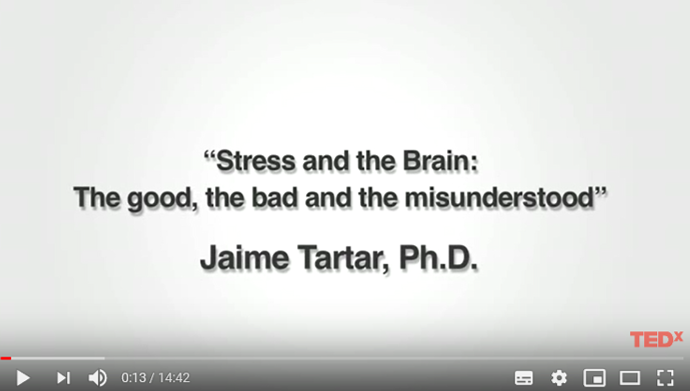
Jaime Tartar tells us about how the brain interprets what is stressful, how it determines our behavioral and physiological response to stressors, and how it can be damaged by stress. She will discuss how the body’s reaction to acute stress has protective and adaptive effects in the short run while chronic stress can lead to poor health consequences such as decreased memory performance and depression. Tartar is an Associate Professor of Psychology at Nova Southeastern University.
De link naar deze interessante lezing van Jaime Tartar over Stess and The Brain op TEDxNSU van ongeveer een kwartier vind je hier.

Sara W. Lazar, PhD is an Associate Researcher in the Psychiatry Department at Massachusetts General Hospital and an Assistant Professor in Psychology at Harvard Medical School. The focus of her research is to elucidate the neural mechanisms underlying the beneficial effects of yoga and meditation, both in clinical settings and in healthy individuals. She is a contributing author to Meditation and Psychotherapy (Guilford Press). Her research has been covered by numerous news outlets including The New York Times, USA Today, CNN, and WebMD, and her work has been featured in a display at the Boston Museum of Science.
Sara has several interesting TED talks on ‘How stress effects your brain’ including the following
More information on Sara Lazar and her Harvard University’s ‘Lazar Lab’ can be found here.
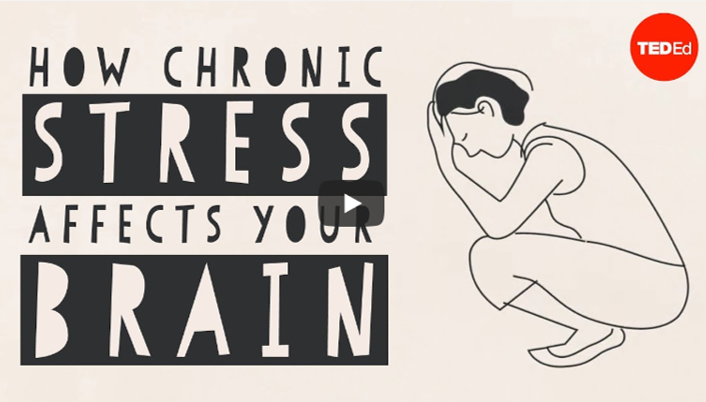
‘How chronic stress affects your brain’: Madhumita Murgia – TED Ed
Stress isn’t always a bad thing; it can be handy for a burst of extra energy and focus, like when you’re playing a competitive sport or have to speak in public. But when it’s continuous, it actually begins to change your brain. Madhumita Murgia shows how chronic stress can affect brain size, its structure, and how it functions, right down to the level of your genes.
De link naar dit kort filmpje vind je hier, een langere versie is hier beschikbaar.
Recente reacties